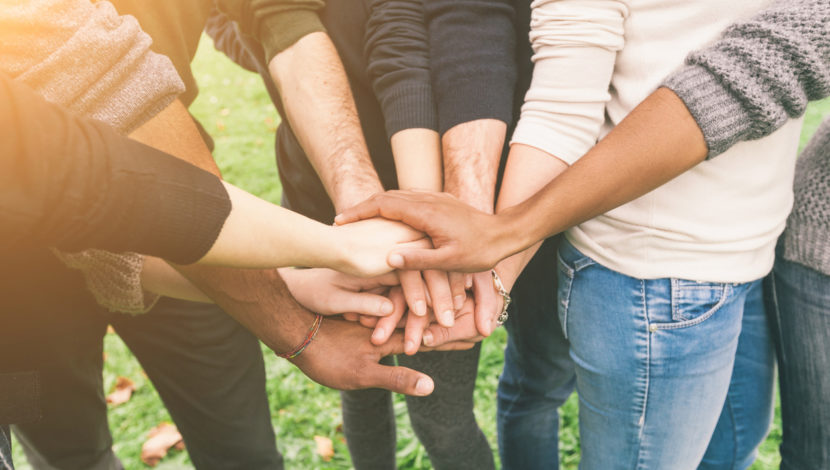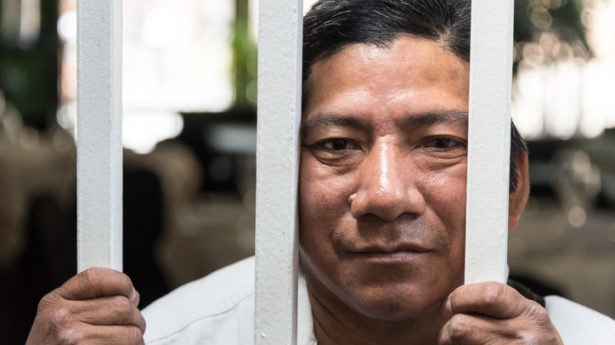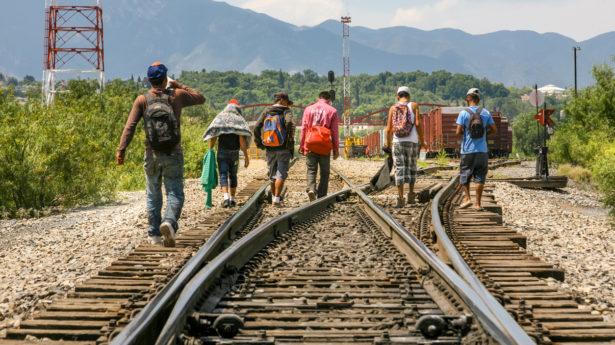The Unitarian Universalist Service Committee advances human rights through grassroots collaborations.
Solidarity in The Heartland: Resisting Injustice in the Immigration System

By on October 4, 2019
One of the deepest lessons we’ve been learning in recent days has to do with the power of relationships. When so many threads within our political systems seem to be unraveling or twisting into knots, the sustenance we give to one another through kindness, solidarity, and accompaniment matter more than ever before. They remind us of the ways we want our world to be, and they elevate that vision even in the face of a currently grim reality. But more than that, our connections with one another sustain us even when we lose a particular struggle: even when we can’t stop a bad law from passing or a good person from deportation.
This became especially vivid for us this fall, through the magnificent solidarity we witnessed from the Second Unitarian Church of Omaha, NE. It began when UUSC received an urgent inquiry from Detention Watch Network, one of the coalitions in which we’re a member. They had just learned that a young man named Jesus, an immigrant who was brought to the US by his parents as a small child, had been arrested for a misdemeanor. Because he didn’t have permanent status, he was in danger of deportation back to a country he couldn’t even remember. The immigration court to which he was assigned was in Omaha, but his family all live in Chicago. Our friend wanted to know: Did we know anyone in Omaha who might be able to host a small group overnight – in just a few days! – so that Jesus would not face his danger alone?
As it happened, we did know someone in Omaha: the Rev. Cyndi Simpson, minister to the Second Unitarian Church of Omaha. A year ago, Cyndi was one of the 60 religious leaders who answered our urgent call to come to Tucson, AZ, to defend the right to give humanitarian aid to migrants in the face of attempts to criminalize such aid. So, we called her up. And despite the suddenness of the request and the short notice, within hours we had connected her with Jesus’s family and the Chicago-based group helping them, Organized Communities Against Deportation (OCAD). Cyndi immediately began reaching out to her parishioners and beyond for hospitality and solidarity. She told us that even with such short notice, “thanks to the Omaha Area Sanctuary Network, Indivisible Nebraska, and members of my congregation, the word spread pretty quickly. On the day of the hearing, we had about 50 people show up!” And the congregation provided overnight lodging for the Chicago delegation after their long trip.
This particular story does not have a happy ending: Jesus went before a judge who was known for issuing deportation orders for nearly 100% of the people who come before him. At the hearing it became clear the prospects were not good. The next day Cyndi told us, “I have sat in quite a few courtrooms now and watched a travesty of justice unroll, with the key players pretending that justice is being served. This was another one of those times. Jesus is a DACA recipient, a Dreamer, and he needs to complete his re-application for DACA. His detention means he can’t, because ICE won’t cooperate with the folks who manage DACA – who are literally across the hall.”
A few weeks later, Jesus was issued a deportation order, leaving his family and friends heartbroken. But as hard and sad as this outcome has been, the story also includes the relationships of accompaniment, kindness and care that emerged among strangers on a moment’s notice. Jesus’s brother Miguel said they had been “positively overwhelmed with the solidarity” they experienced. And now, the Second Unitarian Church feels connected to Jesus and his family and committed to supporting him in any way they can, including with funds to help him through the trauma of deportation from his only home. “Being involved has made me feel much less helpless and hopeless in the face of hideous injustice,” Cyndi told us. “By connecting with and engaging from a place of mutuality with Miguel and OCAD, my life and that of our congregation were spiritually enriched.”
This is what solidarity looks like. This is what it means to live out the deep calling of our Unitarian Universalist faith: we insist that each person is inherently worthy, and that no person is disposable. This is how we re-weave the tattered threads of our society into a strong binding of respect, fairness, and compassion. Omaha’s network of activists represents the “heartland” in exactly the way we most need to see it: a land full of heart.
Photo Credit: iStock – william87
***
About UUSC: Guided by the belief that all people have inherent worth and dignity, UUSC advances human rights globally by partnering with affected communities who are confronting injustice, mobilizing to challenge oppressive systems, and inspiring and sustaining spiritually grounded activism for justice. We invite you to join us in this journey toward realizing a better future!

